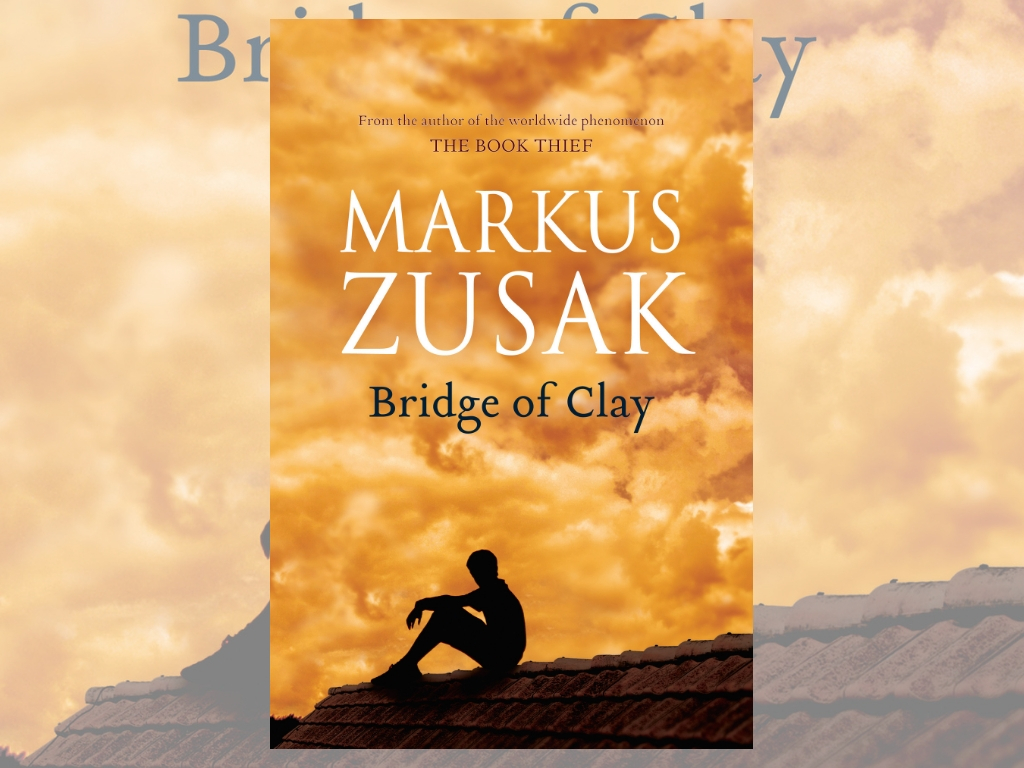
The entire time that I was reading Markus Zusak’s new novel, Bridge of Clay, I had Josh Pyke’s song “Feet of Clay” going around and around in my head. Perhaps, this has only strengthened my belief that the entire novel is really some sort of extended metaphor, although for what exactly I couldn’t say. One thing is for sure: if readers were expecting more of the same from the author of The Book Thief, they’re likely to have been in for a surprise.
In as much as it can be summarised, the book is about Clay Dunbar, the enigmatic fourth Dunbar boy, and the events that happen to him after he agrees to help his estranged father build a bridge. The five Dunbar boys- Matthew, Rory, Henry, Clay and Tommy- have been living alone in their house since their father, Michael, abandoned them. Prior to that, their mother Penny died a slow and painful death from an aggressive cancer. The effect of both of these events on the Dunbar boys has reverberated through their lives as they’ve grown, but for Clay in particular, there seems to be a hurt that needs to be healed. This opportunity to re-connect with Michael, and to revisit the events of the past, will give him the strength that he needs to cope with what is to come. This is just one strand of the narrative, in a book that covers Clay’s relationship with the apprentice jockey Carey Novac, the history of Penny and Michael’s relationship and their pasts before they met, Matthew’s relationship with his brothers’ teacher and much much more. It is no wonder that the book is such a door stop.
Undoubtedly, Zusak’s unique and quirky writing style, beloved by readers of The Book Thief, is still present. At times his determination to use figurative language that is as far from cliched as possible resulted in some stunning turns of phrase, but there were also moments where this obscured the meaning of what was actually happening in the action. There are two significant plot points which spring to mind (and I won’t say what they were) where I am 80% sure that I know what happened, but it was never explicitly said. For a book with a lot of dramatic revelations, this tended to dull the impact. There were moments where I knew I should have been crying, but I just wasn’t.
Perhaps also this came from the distance between me as a reader and Clay Dunbar, the protagonist. Though we were told much about his activities, particularly with regard to bridge building, athletics, and Carey Novac, I still never felt like I understood what made him tick. Instead, I knew more about his oldest brother Matthew, who was the novel’s narrator. As for the other three Dunbar brothers, they all ran a little into one after a while. For another writer, perhaps, this may have been enough to make me abandon the book, but I trusted that Zusak was building up to some sort of payoff, and that, even though there seemed to be twenty different threads of the narrative mingled together, there would be a payoff if I just kept reading.
I spent a full day reading this book last weekend, and every spare moment I could snatch around work to finish it. In particular the setting was vivid to me—a town revolving around its race track, where the streets were named after race horses, and teenagers crash tackled each other on the old track of an evening. The magic of the setting of Bridge of Clay is in the details particular to this book alone, such as the horse racing culture that Zusak develops around the Novac family, and in the Dunbar family’s preoccupation with the stories of Homer, The Odyssey and The Iliad. I could picture their house, their elderly neighbour who came over to check the boys after their fights, their animals, the mattress in the middle of a place called The Surrounds where Clay and Carey Novac would meet. It’s a highly compelling book, and as is true of all family histories, it contains a lot of very complex personal histories all woven in to one.
It’s hard to review a book when it is so clear how much heart and soul and effort an author has put in to writing it. There is no doubt that Zusak is a talented writer, but to my mind, Bridge of Clay is not, as was touted by all the media preceding it, ‘the most anticipated book of the decade’. It was a good book, but it could only fall a little short of all the fanfare it was given.
THREE STARS (OUT OF FIVE)
Markus Zusak’s Bridge of Clay is available now through Pan Macmillan Australia.
Markus will be appearing at both Perth Writers Week (Feb 19th-25th) and Adelaide Writers’ Week (Mar 2nd-7th)
